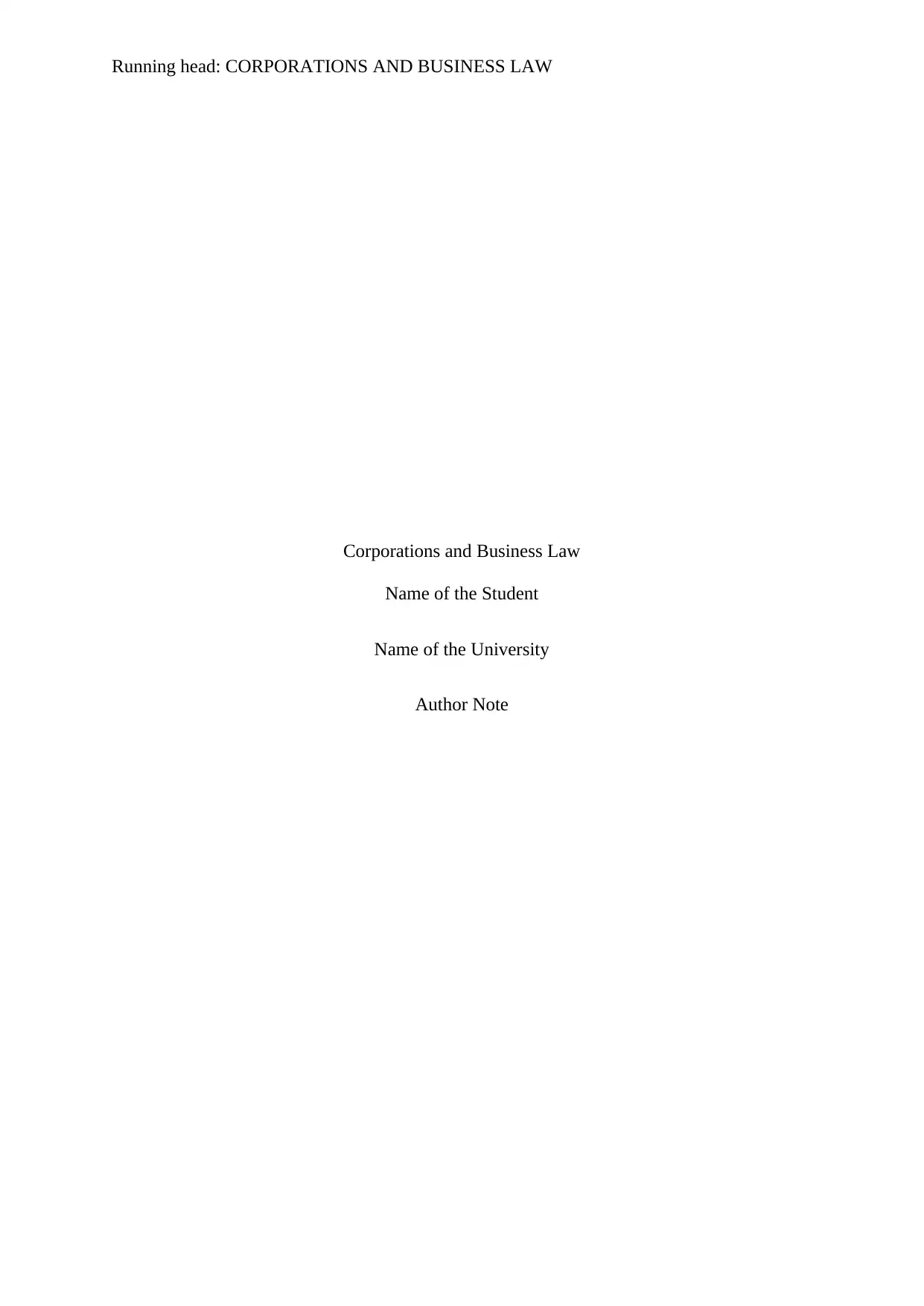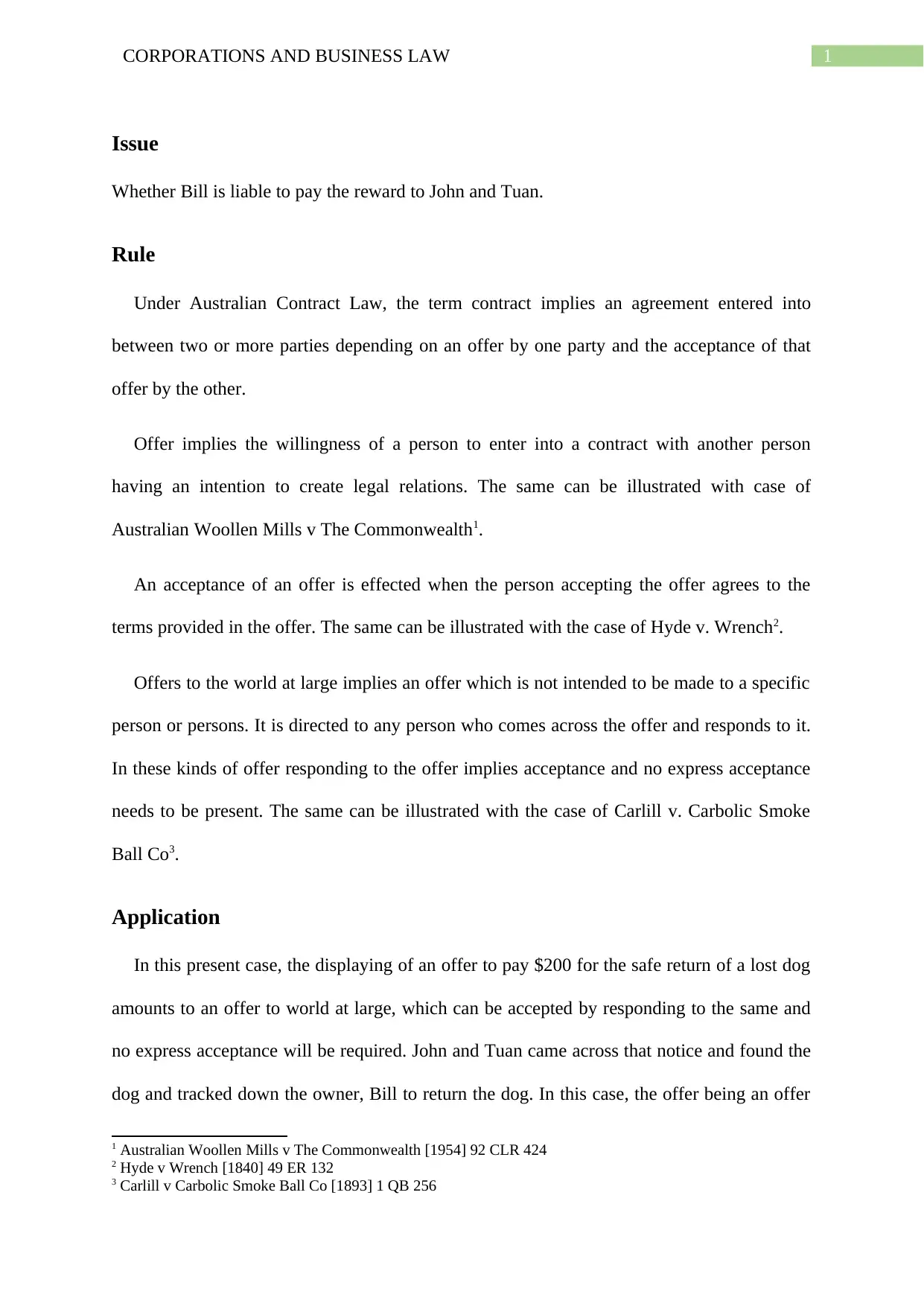Case Study: Offer and Acceptance in Australian Contract Law
VerifiedAdded on 2023/04/23
|4
|436
|467
Case Study
AI Summary
This case study examines whether a contract was formed between Bill, John, and Tuan based on the principles of offer and acceptance in Australian Contract Law. The analysis applies relevant legal rules, including the concept of offers to the world at large as illustrated in Carlill v. Carbolic Smoke Ball Co., to determine if Bill is liable to pay the reward for the safe return of his lost dog. The conclusion is that Bill is indeed liable because the actions of John and Tuan constitute a valid acceptance of the offer, which was made without any disclaimers regarding seriousness.
1 out of 4










![[object Object]](/_next/static/media/star-bottom.7253800d.svg)